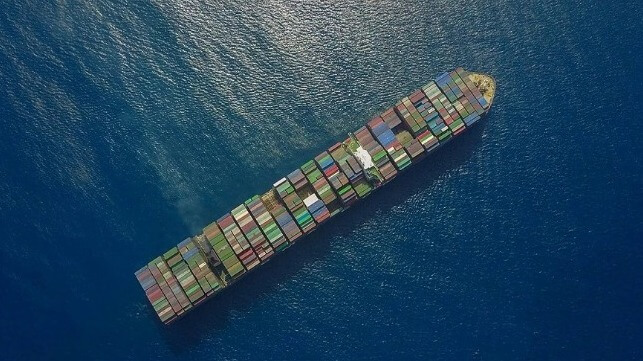2024 Could be “Even More Brutal” for Container Carriers Warns Xeneta

The handwriting has been on the wall for some time with analysts warning that the container shipping segment was facing a prolonged period of hard times brought on by falling volumes, oversupply, and declining rates. Widely followed indicators such as the Drewry World Container Index have continued to fall and now Xeneta, the freight rate benchmarking and market analytics platform, warns that it sees an “ominous sign for carriers,” as long-term contracted rates continue to slide.
“The warning signs were already there, but the latest data from Xeneta suggests 2024 could be even more brutal than expected for carriers in the ocean freight shipping market,” the company writes in its latest market analysis. The Xeneta Shipping Index, which tracks developments in global long-term contracted rates, they reported fell by a further 4.7 percent in October and it is now 62.3 percent lower than in November 2022.
Xeneta Market Analyst Emily Stausbøll highlights however that this could be an even more ominous sign for carriers. She points out that older contracts are likely propping up the average, commitments that were signed in 2022 when rates were much higher. Stausbøll warns however the situation will get even worse as we enter 2024.
“Those older contracts will largely be replaced in the early part of next year and carriers will be left exposed to the current weak market,” says Stausbøll. She notes even at current levels four major carriers posted big financial losses in the third quarter of 2023. All the companies reported significant declines universally highlighting rates more than volumes as the key contributor.
Maersk, which has long been seen as a bellwether for the industry, warned in its third-quarter report that the industry needed rates to begin rebounding. The industry’s second-largest carrier, a large portion of Maersk’s business (68 percent) is on long-term contracts. Speaking to investors Vincent Clerc, CEO of Maersk highlighted the upcoming contract negotiations with shippers warning that if spot rates did not improve it could lead to “a pretty dire situation in 2024.”
Drewry in its most recent index report issued today, November 30, highlights that while the composite index remained stable at $1,382 this week, it has dropped by 40 percent when compared with the same week last year. They noted it stands down three percent compared to the pre-pandemic average in 2019 and year-to-date is nearly $1,000 lower than the 10-year average.

that matters most
Get the latest maritime news delivered to your inbox daily.
“We always knew there was a storm coming in Q1 2024 when the older contracts expired, but it seems as though it has arrived earlier than expected,” says Xeneta. “We can be absolutely certain the new contracts will be signed at much lower rates than those signed at this time last year, so if carriers are already reporting losses, what are they going to be next year? We could be talking about extremely big numbers.”
Xeneta sees some positive signs noting that long-term rates remain up by 39.5 percent compared to November 2020. With limited prospects for a strong rebound in rates, they believe carriers will have to get more aggressive in capacity management to avoid the potential of catastrophic financial losses in 2024.
